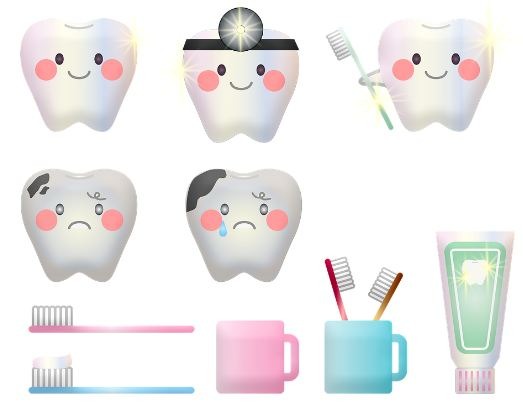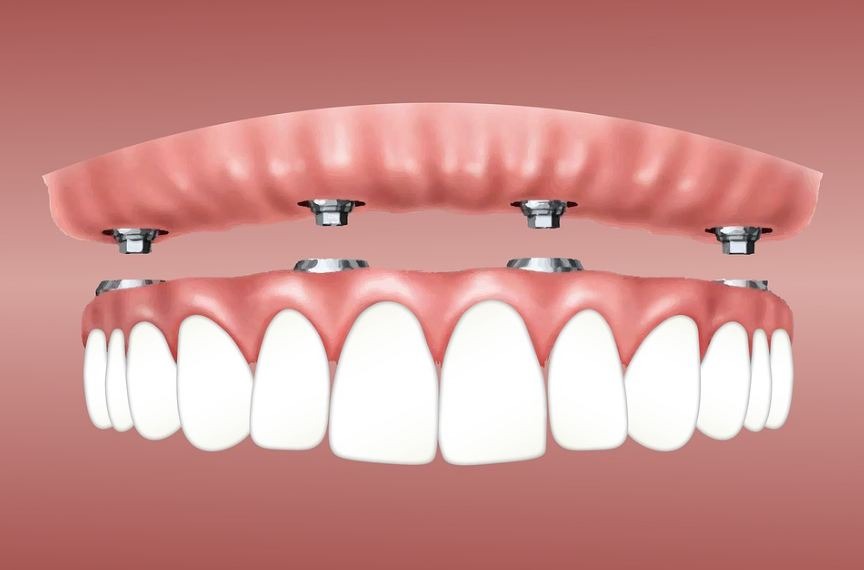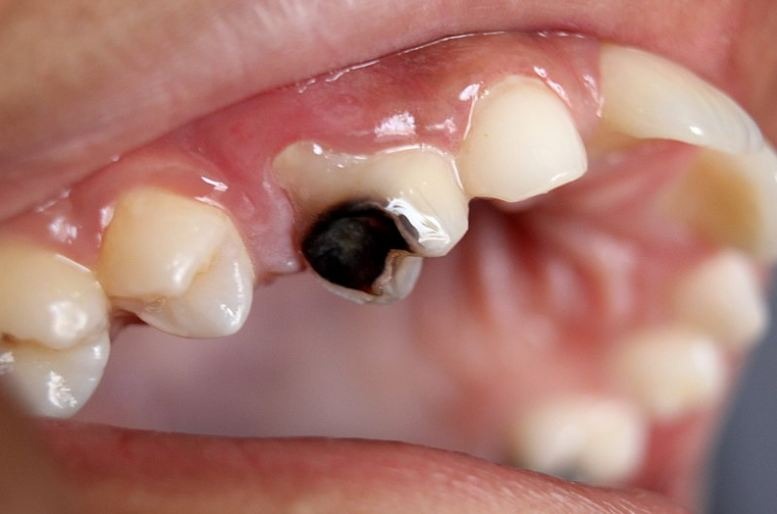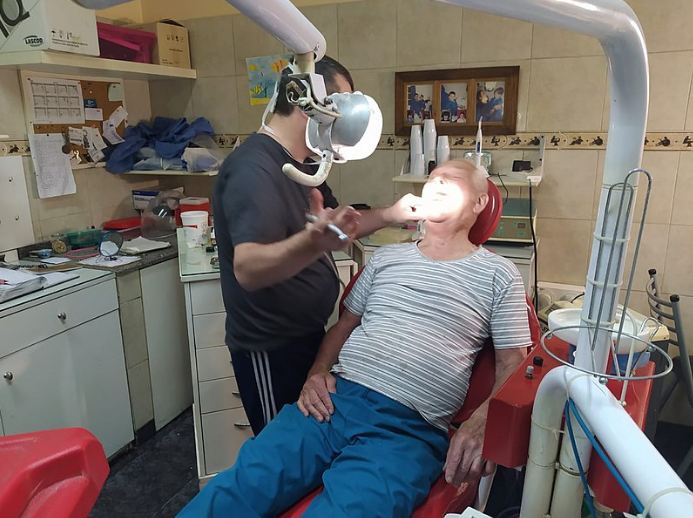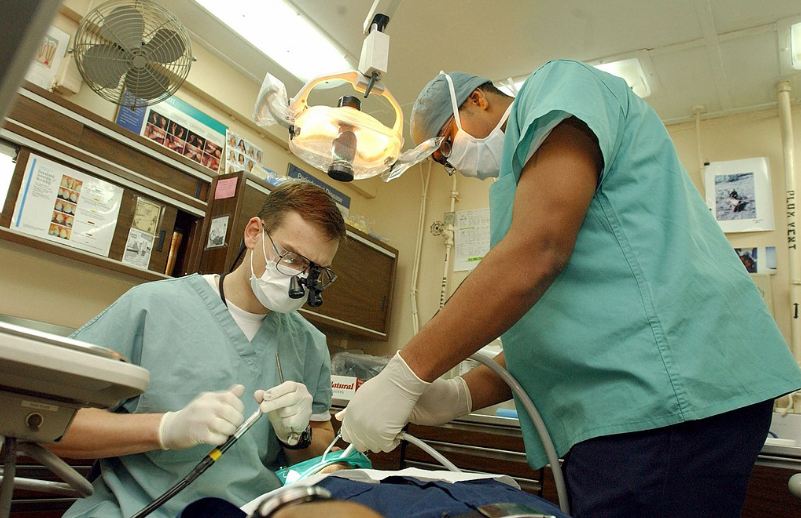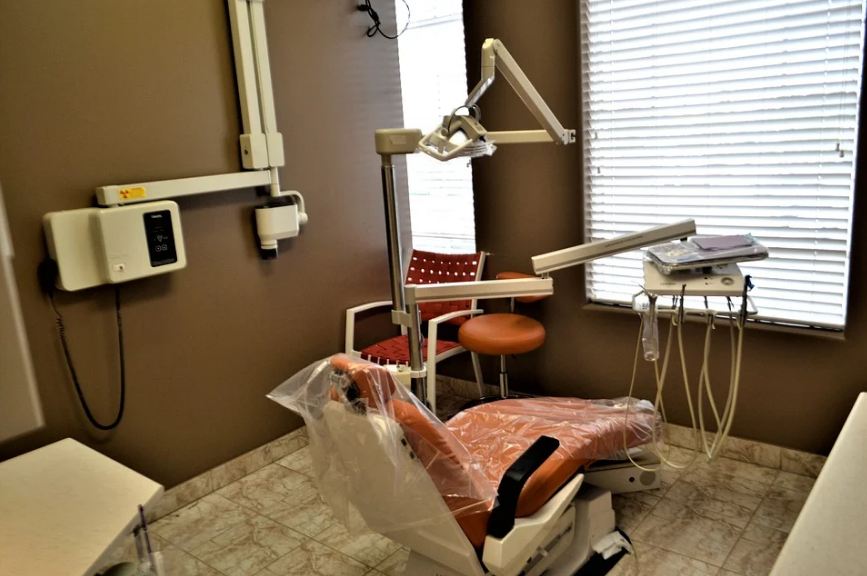Toothaches are the bane of our existence, the ultimate form of a slow burn, and the stuff of nightmares. They don’t even have to be sharp. Even dull throbs can render a person unable to eat, drink, or talk. A toothache is caused when the nerve endings in the teeth or around the teeth are irritated. While the issues are usually common and easy enough to deal with, sometimes toothaches can also have underlying causes that are complicated to get rid of.
Bacterial Infections
This first problem is frequent but very easy to take care of. Food that is left on teeth after meals, especially overnight, causes bacterial growth. These bacteria live in the thin biofilm of your tooth, known as the plaque, and use glucose and other sugars from the leftover food in your mouth as their food source. This respiration in the bacteria releases acid as a by-product. The acid slowly eats away at the enamel, the protective layer of the tooth, causing it to erode. Consequently, the nerve endings in your middle tooth are exposed. These nerve endings, once stimulated, give birth to the sensation of pain.
Gum Disease
Another problem born due to bacteria accumulation in the mouth is Gum Disease or Periodontitis. The gums get inflamed and pull away from the teeth. The gap between the gum and teeth becomes a spot for bacteria to settle, causing infection. The body’s immune system rises to defend itself against detected pathogens.
The toxins from the plaque, as well as the body’s natural enzymes, start attacking the bone and tissue inside the mouth. You get a toothache, and the pocket between your gum and tooth continues to deepen. Due to tissue deformation, the gums cannot hold the tooth in place anymore thereby leading to tooth loss.
Lack of Saliva
Lack of Saliva also gives birth to dental problems and infections. Saliva is crucial to healthy teeth, as antimicrobial agents in it kill bacteria. They also create a protective layer around the teeth. Saliva neutralizes acid in the mouth, thus, protecting the enamel against erosion. If the mouth doesn’t produce enough saliva, supplements are needed to overcome the deficit. Xylitol is one such very useful drug.
Wisdom Teeth
When wisdom teeth first start to push through your gums, they can cause a feeling of discomfort or even pain. This feeling is normal and should go away when the tooth is fully grown. In some cases though, the pain persists for several different reasons. A cavity is one very common cause. As wisdom teeth grow later than all other teeth, they can sometimes be forced to squeeze into small spaces due to lack of area. These make them prime targets for cavities.
Cavities
Cavities are areas in the surface of the tooth that are permanently damaged and have formed small pits or holes. Food can get stuck in them and becomes harder to cleanout. Usually, they have to be filled by a dentist. According to Pediatrics in Northern Virginia, VA, cavities make the perfect growing spaces for bacteria and are a major reason for toothaches and tooth loss.
A wisdom tooth can also cause immense pain if it’s impacted. An impacted tooth is a tooth that cannot erupt or push through the gum because it does not have sufficient room too. One common cause of this is when a tooth grows in the wrong direction and collides with another tooth. It is stopped from erupting due to the root of the already grown tooth, and the pressure it exerts to push itself out causes pain. In this case, the wisdom tooth has to be removed. Doctors advise removing the wisdom tooth in a lot of these problems to prevent further issues.
Damaged Fillings
We’ve already talked about how the enamel layer of the tooth keeps it safe. However, deep fillings can come in direct contact with nerves, which is why a tooth is usually sensitive after getting a new filling. The sensitivity usually goes away as the nerve heals, and the filling settles in. Of course, there can always be issues. The fillings may not fit, or become damaged or crooked. Fillings that don’t fit, usually fall off to reveal the inside of the tooth and have to be positioned again. Sometimes, the filling could wear off after a while and you may have to get a new one.
During this period, if the filling is too close to the nerve, there is also a chance of developing an infection. You can also be allergic to the filling, although it is very rare. If a filling is too deep and ruptures blood vessels, the tissue may die, and a root canal may be required. It is always advised to provide a complete history to your dentist regarding any allergies or sensitive problems.
Here are some of the top medicines used for tooth pain – Strongest Over the Counter Pain Medication for Toothaches
Grinding or Clenching Teeth
The constant grinding of teeth against each other wears them down. Gritting your jaw, or chewing gum frequently and for long hours causes friction, and slowly rubs away the layer of enamel on the teeth. Usually, molars at the end of the jaw are affected, although front teeth may also face the effects of wear and tear. Stress is a major reason why people grind their teeth. Either use a mouth guard or consult a psychologist who can advise you on getting any stress medicines.
Tooth Removal
Tooth removal causes swelling, bleeding, and pain for up to an hour after the anesthesia wears off. This is because the gums are sore from the process, and the root of the tooth is newly emptied. After this time, the pain should fade away, yet, sometimes the pain doesn’t leave and gets progressively worse. A lot of factors can lead to that, one of which is a dry socket.
When a tooth is pulled out, the body forms a small clot in the place of the lost tooth’s root. This clot, over a healing period, hardens into the gums. However, if you drink carbonated beverages, smoke, or blow on things, this clot can be pulled out.
You might have caught an infection too, and in that case, you will have a fever, swelling, and continuous bleeding presenting as your symptoms along with a toothache. An infection can cause the formation of pus, and you should immediately talk to a doctor and get the required antibiotics. The Sinus lining is also at risk during tooth extraction, as your sinuses lie just above your upper molars. Sometimes, during the procedure, many people tend to move thereby hindering the process of the dentist. As a result, this can damage this lining and cause complications.
Necrosis
At last, Necrosis is perhaps the rarest and most complicated reason for toothaches after tooth removal. Necrosis Fasciitis is defined as “the death of body tissue”. Sometimes, an extraction causes Cervical Necrosis Fasciitis, an infection that causes the death of soft and connective tissue. The first case ever presented was in a woman that tested positive after having four of her teeth removed.
In such instances, the dead tissue has to be removed before the necrosis can spread to other parts of the mouth. At times, the Necrosis cannot be contained- it is fatal. Necrosis is known as being unbearable, as the death of the tissue causes excruciating pain. This condition usually presents in people with a history of cancer, diabetes mellitus, and renal problems.
Suggested Reading – Essential Oils for Joint and Muscle Pain
Trauma
Trauma to the tooth, especially blunt force trauma, is another big issue contributing to toothaches. Being hit with a lot of force breaks teeth, or parts of it, exposing the nerves and blood vessels in them. When eating something, the pressure of food against those nerves sends up sharp bursts of pain to your brain. If the tooth broke with a jagged end, it might cut your cheek and tongue, causing even more pain on top.
If the pain is very sharp, and difficult to bear, you can take pain medication like ibuprofen according to label instructions. However, it is always advised to consult an expert dentist for better and more precise advice as per your specific condition.
Conclusion
In conclusion, unless your tooth has broken, no toothache should last more than two days with proper care. If it does, you should check yourself for symptoms of sinus infections, like postnasal drip, lethargy, headaches, nasal stuffiness, coughing, and tenderness in the face.
If your symptoms do not match with a sinus infection, you should get yourself a dentist appointment and get it checked to reduce the risk of something more serious developing. Chronic pain can cause fatigue as well as lack of sleep and appetite, which can harm your health. Get in touch with a dentist now and establish a stable dental exam routine. Make your health your priority.

